One year of women, talking to each other, about something other than a man
January 20, 2018 marked the first full year of Donald Trump in the White House, and what a year it has been for women. An ideological sea change, led by women, has manifested in countless ways throughout culture, including in the appearance of multiple “Bechdel Test Fests.” The first full day of the Trump presidency was met with the historic Women’s March, the largest single-day protest in American history, in direct response to his inauguration. The March in D.C. inspired like-minded marches all across the world, as millions of women donned knit pink “pussy” hats in demonstration against the unapologetic “pussy-grabbing” comments of the new president.
And the March was not just some pointless angry flash mob, as some conjectured. “Feminism” was Merriam-Webster’s “word of the year” for 2017, and while the year started out looking pretty grim for women (as the new administration and Republican-held Congress began waging war on organizations like Planned Parenthood), it also saw the re-launch of the Women’s Convention, the first national women’s convention in 40 years, and women candidates racing to victory in November’s special elections, showing that the momentum of the Women’s March did, in fact, translate into action-oriented activism and direct electoral power.
But most visible was the #MeToo movement, which became a cultural zeitgeist late in the year when, suddenly, accusations of sexual harassment and abuse were actually taken seriously, for once. TIME even named their person of the year “The Silence Breakers.”
It was a moment in time with repercussions that echo out years, if not decades, into the future, and has very likely marked a turning point in the gender discriminatory/institutionalized sexism norm of American culture, a toxic culture in which daily casual sexual harassment is normalized and women are expected to blindly accept it (not to mention smile and laugh and be flattered by it) because that’s “just men being men.” Women were saying – SHOUTING – “This is NOT okay anymore. We will NOT accept this as just a normal part of our lives anymore. We will NOT be silent anymore.” And people – men – listened.
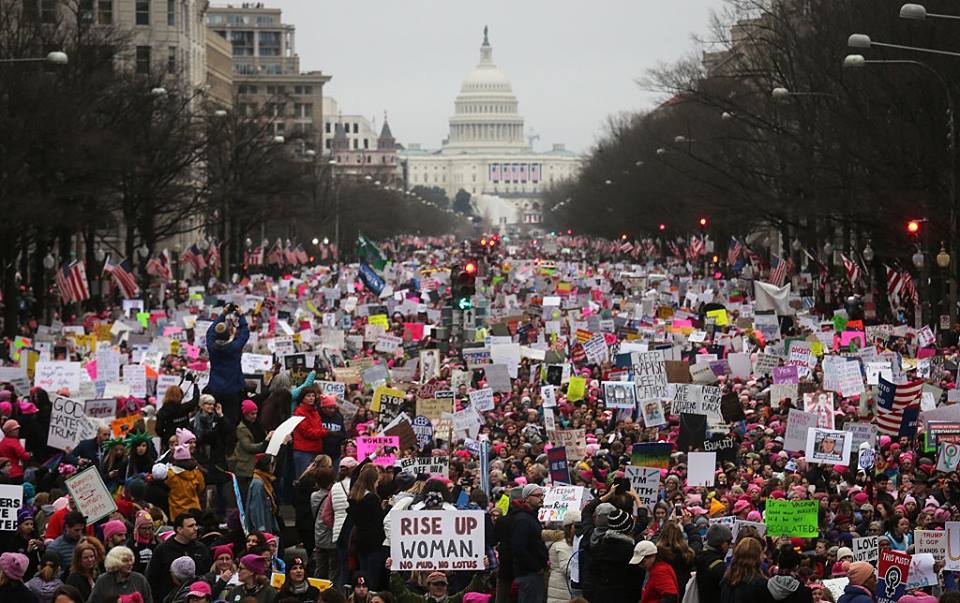
Men in positions of power with long-known histories of sexual misconduct were almost instantly toppled, from notoriously predatory movie executives to beloved television personalities, radio hosts, comedians, and politicians.
And all of that leads us to now, one year later, a year in which midterm elections might prove to be the Republican Party’s day of reckoning – something the organizers behind the national Women’s March want to make sure of, which is why, on the one-year anniversary of last year’s January 21 march, they launched a national voter registration tour called Power to the Polls, in the hopes of galvanizing pro-women and progressive support going into these midterm elections when all 435 seats in the House and 33 of 100 seats in the Senate will be contested. The outcome of these elections could mean a seismic power shift in American politics.
But if 2017 was all about women speaking truth to power and taking history-making action, it was still a year that struggled with issues of representation and visibility in popular culture (which is, for all intents and purposes, quite simply THE culture). Gender stereotyping and discrimination is still very much entwined in the fabric of our culture’s ideology. The Golden Globes, Grammys, and Academy Awards have all once again faced scrutiny for their dearth of female nominees and winners, which certainly isn’t anything new but has been all the more glaring in this year of all years. Perhaps a bit more heartening news, then, is that most of the year’s biggest blockbusters passed the Bechdel Test (some barely so, but still passed).
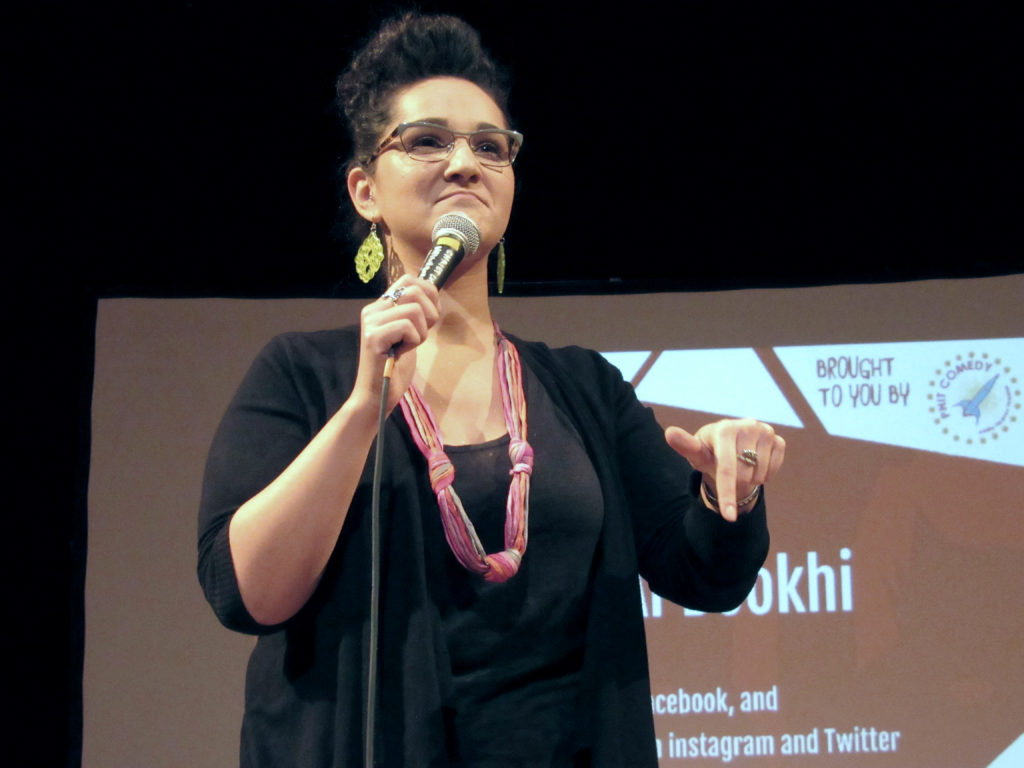
The Bechdel Test is an easy measurement that evaluates the representation of female characters in films, and whether or not that representation is inherently sexist or characterized by gender stereotyping. Named for the author and cartoonist who first proposed it, Alison Bechdel, the Bechdel Test looks at three criteria in order for a movie to pass. The movie must (1) have at least two women in it, who (2) talk to each other, (3) about something other than a man.
It sounds simple and relatable enough but still the Bechdel Test is largely a talking point of academics and activists, and not exactly something that is part of the popular consciousness. Nor is it something most movies pass easily (2017 was a watershed year and yet most of the top-earners that did earn a pass just barely eked it out).
Which is why Brit Charek of Akron, Ohio is organizing a “Bechdel Fest,” a film festival that will highlight films that pass the Bechdel Test, featuring works made by female directors, producers, and actors. Her Bechdel Fest was a recipient of a 2017 Akron Knight Arts Challenge grant.
“This is something close to me,” she says. “I have two boys and being a mom raising boys is a huge responsibility at this point. I want my sons to grow up and see women as their equals, as well as LGBTQ people, people of color, people with disabilities. It’s so hard because as I look at media they’re watching, I go back to the movies we grew up with like The Goonies – it’s horribly sexist and I’m horrified by it, but we grew up with it and loved it. I just want things to get better. I want to see better representation onscreen [and behind the camera].”
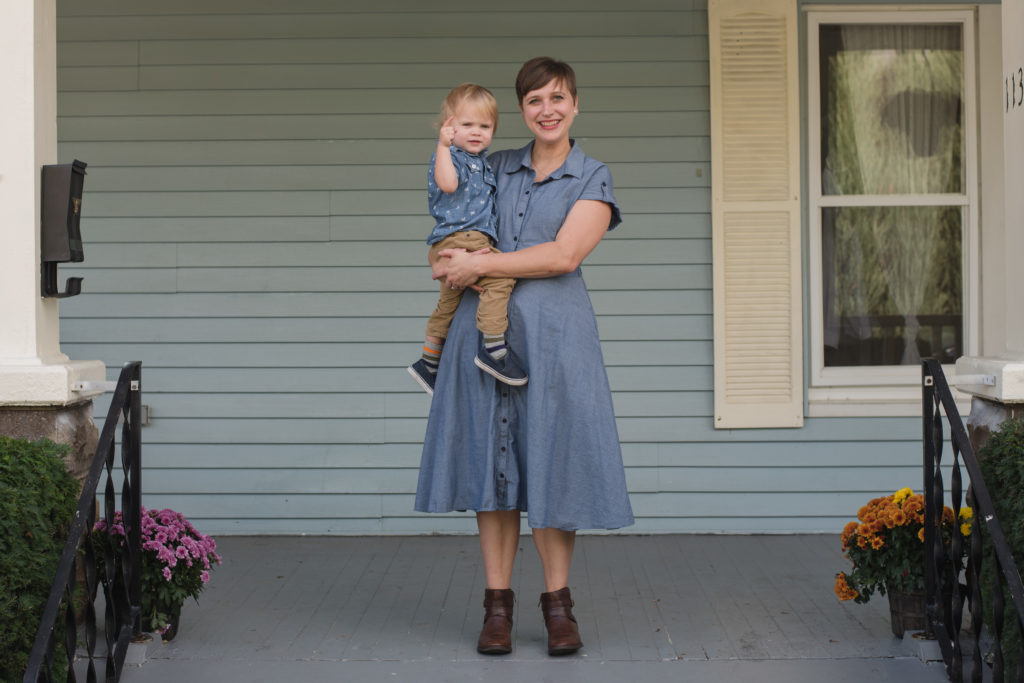
Charek’s Bechdel Fest will be held May 28 through June 2, 2019. With it being well over a year out still, much of the programming still needs to be worked out, but she does have three theatre spaces as well as an outdoor screening space to use and would like to also have panel discussions with filmmakers and others in the industry. She also plans on offering a free family-friendly day of programming.
One theatre that will be used is an independent movie theatre called the Nightlight, located on the same block as the historic marker where Sojourner Truth gave her “Ain’t I a Woman?” speech. This is also why Charek chose the dates that she did, honoring the anniversary of that speech first delivered at the Women’s Convention in Akron on May 29, 1851.
She feels that the time is especially ripe for a festival like this, with seemingly more and more people getting “fired up” about pro-woman activist work.
“I can’t get over how many strong, creative women have become more community-minded in the last year and have come out of the woodwork to do such cool stuff,” she says. “People are less afraid to talk about these things that are systemic issues that affect all of us, and I’m hopeful in that way. It’s been a bad year [politically] but good things have come out of it. It’s really nice to see this huge spread of awareness of how other people are being treated, not just women but in general.”
Charek’s isn’t the only Bechdel Test-themed festival in the country – not by a long shot. Multiple other “Bechdel Test Fests” have sprung up across American in recent years, like the Bechdel Film Festival in Houston that will hold its inaugural event this February. And these festivals aren’t just limited to film: a number of performance theatres are also holding their own Bechdel Fests now.
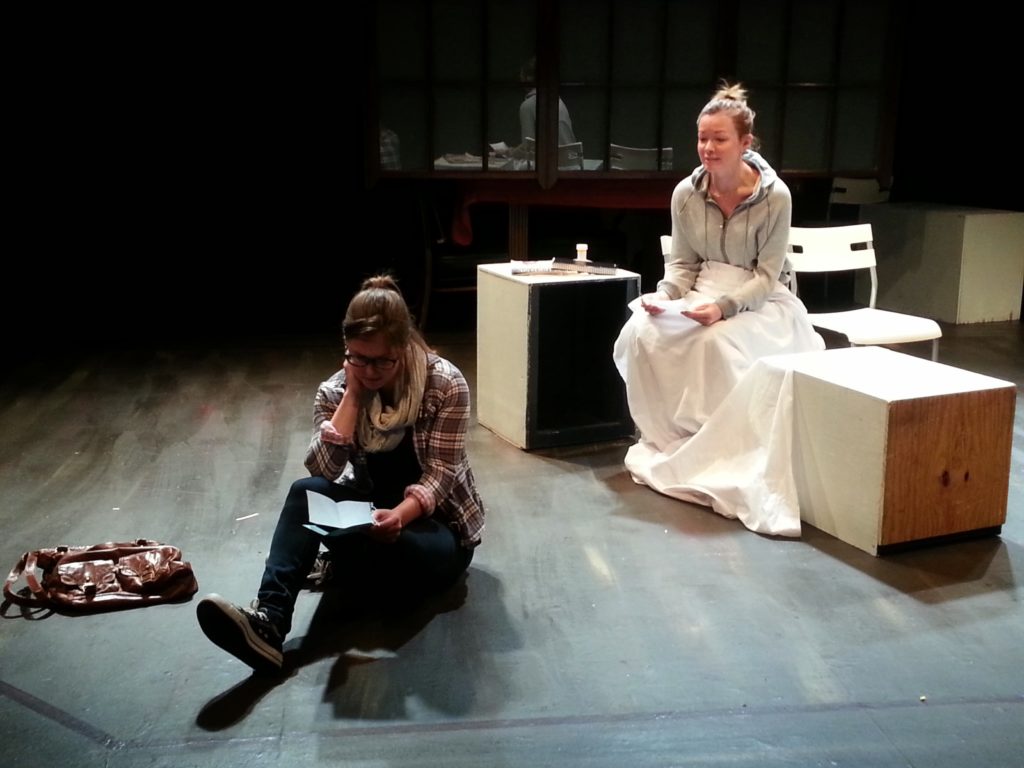
The entirely pay-what-you-can Broken Nose Theatre in Chicago started their own Bechdel Fest five years ago after realizing one season early in the theatre company’s existence was highlighted by a play starring four men and written and directed by a man.
“We wanted to balance this out and make sure we were getting women’s voices on stage also,” explains Ben Brownson, Artistic Director of Broken Nose. “And we didn’t just want an all-female festival because there were a few like that already.”
Since then, the Bechdel Fest is one of the company’s favorite events they produce year after year, and they decided it needed to be one of its mainstays.
Each year the multi-day festival stages eight or nine short new works from largely female-identifying playwrights and directors and featuring all-female-identifying casts.
“We do work with male playwrights and directors sometimes because it’s men’s jobs to represent women as well,” says Brownson, who has himself directed pieces for the festival. “Part of the genesis of the festival for me is questioning how do I, as a straight cisgender white male, help with this representation? What are the things I can do? Sometimes it feels weird running the festival as a straight white male, but the fest felt to me like the way I could do that. At the time [we started this] the company was largely male and all white, and we questioned how we could leverage that and utilize that privilege to tell these stories from underrepresented communities. Men have a role in the conversation of addressing this thorny and complicated topic as well.”
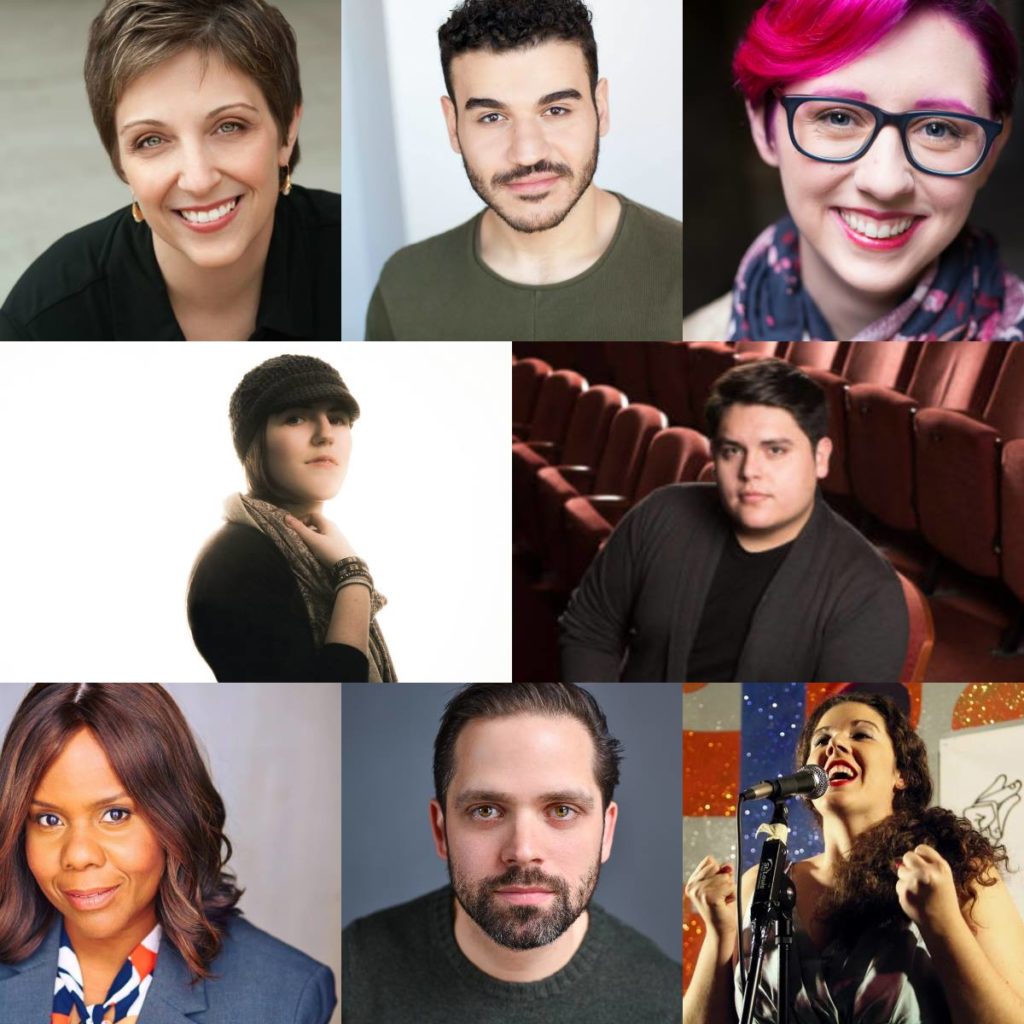
He says that the 40 plays they have developed over the last five years have run the whole narrative spectrum and are not just “women’s plays.”
“[Just because it’s all] women on stage doesn’t mean it has to be an ‘issues’ play,” he explains. “We really want these plays to demonstrate how universal these stories are; [the characters] just happen to be women. Sometimes they could just as easily be swapped out for men and still be having the same conversations; sometimes it’s about women and their roles in the world without beating the audience over the head with [politics].”
Brownson says that Broken Nose is strongly committed to starting conversations rather than presenting an issue and telling the audience how to feel about it. “We just plant the seed, push a few buttons, and let the audience meet us halfway.”
Broken Nose works with a variety of established playwrights and directors as well as people with new and fresh voices who might be debuting in Chicago for the first time at Bechdel Fest. Brownson says they try to work with new people each year, though many have continued to collaborate with Broken Nose and other artists they met after their debut Bechdel Fest and have even gone on to become company members. After five years, the company has worked with about 150 different artists who have been involved in one or more iterations of the festival, creating a cross-collaborative community of its own.
The sixth installment of the Bechdel Fest will be held this summer, and in the meantime Broken Nose is looking to publish a collection of some of the 40 original plays they have developed as part of this festival over the last five years. As far as he knows, Brownson says, theirs is the only (comparatively) long-running theatre festival of its kind in America.
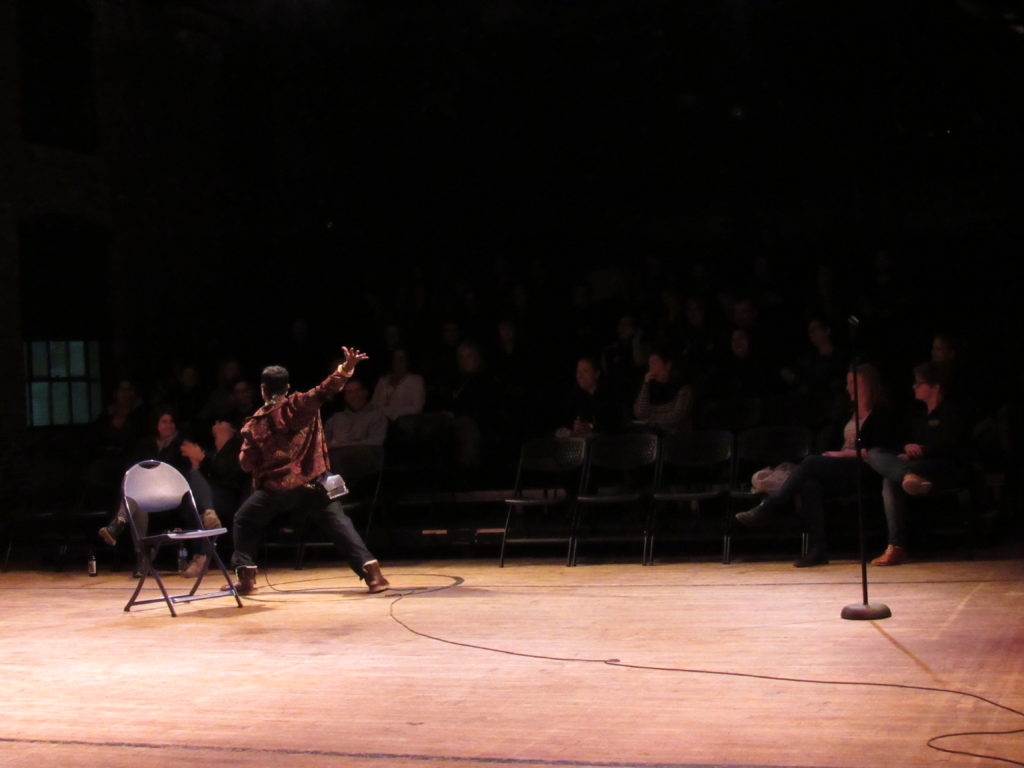
A newer theatre festival called Bechdel Test Fest launched in Philadelphia in 2016. Born out of Philly’s robust comedy scene, this Bechdel Test Fest is women’s comedy showcase featuring improv, sketch, standup, and other variations of comedy acts from all women, trans, and non-binary performers..
The festival showcases both established and new performers, and while it is primarily a regional festival they do accept applications from around the country. They do not charge a fee for applications, which is a rarity, and one thing that is very important to the organizing committee is making sure all performers get paid. (Performers also have the option to donate all or part of their earnings to that year’s philanthropic charity partner.)
This year’s festival will be held March 2-4, with 77 different acts performing in three different venues.
Comedian and artist Alyssa Truszkowski, who has performed in every Bechdel Test Fest since the first event and is now a member of the planning committee, says that while the festival launched months before Trump was elected president, the current political climate lends an increased sense of urgency to the group’s work.
“We’ve known this work was urgent even before the current times, but even though the current times are scary they’re also reaffirming that this is important work and it’s worthy of our time and dedication,” she says.
This year, the festival’s third, the planning committee is particularly focused on inclusivity, making sure that the festival also welcomes trans and non-binary persons.
“We want to make sure we’re an inclusive space that showcases interesting and exciting talent and creates a platform for these voices to be heard,” she states.
While the Bechdel Test as an end-all/be-all measurement is by no means perfect – Alison Bechdel herself even says so – it’s a useful way to take the current cultural temperature. While “Bechdel Fests” of any variety are right now only a handful in number, there could soon be some form of such festival in cities all across America. In fact, Brownson would like to develop a toolkit so other theatre companies can create their own Bechdel Fests based on what Broken Nose has learned after five years of producing them.
The time is, finally, right for such festivals, when they will no longer be dismissed as merely the product of “angry feminists” proselytizing, but as something that is desperately needed in a cultural climate of deeply institutionalized inequality.
And while there may not be a Bechdel Fest in your hometown (yet), there are indeed voting booths: get to them during this year’s midterm elections on November 6.
